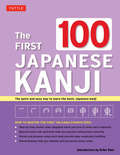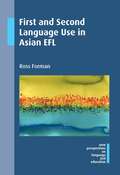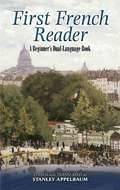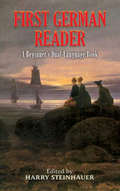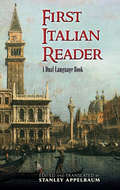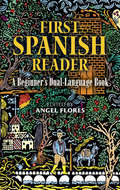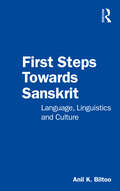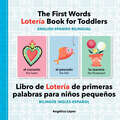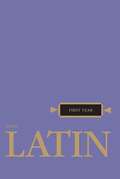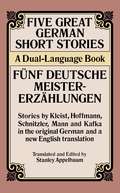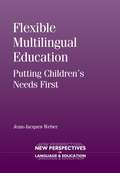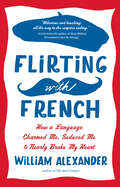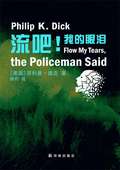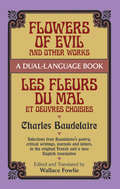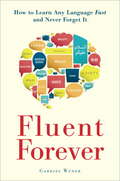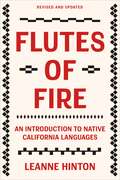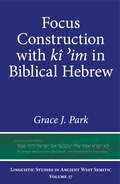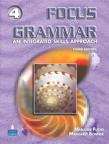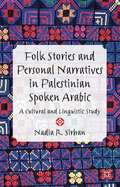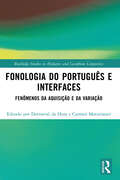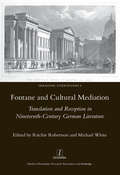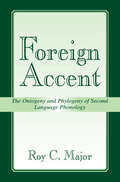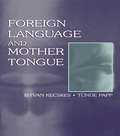- Table View
- List View
The First 100 Japanese Kanji
by Eriko SatoThis is an invaluable study guide for learning basic Japanese characters.The first 100 Japanese Kanji is intended for beginning students, or experienced speakers who need to practice their written Japanese. Kanji are an essential part of the Japanese language and together with kana (hiragana and katakana) comprise the written component of Japanese.This book presents the kanji characters that are most commonly used. They have been carefully selected for rapid and effective learning. Each kanji's readings, meanings, and common compounds are presented, and romanized pronunciations for English speakers (romanji) are included as well. Printed with gray guidelines, stroke order guides are designed to be traced over to teach students the standard sequence of strokes used to write each character. Three indexes at the back allow the characters to be looked up as with a dictionary or by their readings. Students who wish to practice writing kanji will find extra practice sheets available.This book includes:Step-by-step stroke order diagrams for each characterSpecial boxes with grid lines to practice writing charactersWords and phrases using each kanjiRomanizations (romanji) to help identify and pronounce every word
First and Second Language Use in Asian EFL
by Ross FormanMany Asian education systems discourage or even ban the use of L1 in L2 classrooms - although in fact L1 remains widely used by teachers. Why is L1 use still devalued in this context? By observing classes and interviewing teachers, this book explores three dimensions of L1 use in L2 teaching: pedagogy: what teachers actually do, and what they say about it; the personal: what happens to identity when we 'perform' a foreign tongue; the professional: how textbooks are used, and what is distinctive about the EFL domain.
First French Reader: A Beginner's Dual-Language Book
by Stanley AppelbaumThis excellent anthology offers the beginning French-language student a first taste of some of the world's most significant prose. Chosen for both their eloquence and ease of reading, excerpts from such masterpieces as Les Misérables, The Red and the Black, Madame Bovary, Carmen, and The Three Musketeers will open new worlds for linguists. Readers will savor the words of fifty great writers of multiple genres from the seventeenth through twentieth centuries, including Voltaire, Rousseau, Balzac, Baudelaire, Dumas, Proust, and other literary virtuosos.Lucid and accessible, the unabridged English translations by Stanley Appelbaum appear on pages that face the original French text. Literature lovers, French-language students, and other readers will find this volume a fascinating exploration of French literature...and an invaluable aid to mastering one of the world's most romantic languages.
First German Reader: A Beginner's Dual-Language Book
by Harry SteinhauerDesigned expressly for the beginning German language student, here is an outstanding collection of fifty-two short stories, poems, essays, and anecdotes. Each selection has been specially chosen for its power to evoke German life and culture. This dual-language edition features precise English translations on pages that face the original German text. New students will enjoy the pleasure of reading great German literature from the very first page, as the selections have been arranged to accommodate the gradual improvement of language skills. Helpful vocabulary and language exercises are also included. First German Reader features the works of many of Germany's best writers, including Goethe, Hesse, Heine, Schiller, Hölderlin, and other literary virtuosos. The translations of Harry Steinhauer are vivid and true to the originals--and poetic in their own right. Literature lovers, German language students, and other readers will find this volume an accessible exploration of German literature . . . and an invaluable aid to mastering the German language.
First Italian Reader: A Dual-Language Book
by Stanley AppelbaumBeginning students of Italian language and literature will welcome this bilingual anthology edited especially for their needs. Ranging from the fourteenth to the twentieth centuries, it features the works of Dante, Boccaccio, Pirandello, and fifty-two others in both the original Italian and expert English translations on the facing pages. Selections include excerpts from poetry, fiction, history, and philosophy.This is a "first reader" in the sense of its introduction to Italian literature from the 1300s to the 1920s. A solid background in Italian grammar is necessary for the fullest appreciation of the original text. The excerpts are unadulterated, not retold or simplified. Readers can sample the works of men renowned for other talents, such as Michelangelo and Galileo, and discover the original language of The Decameron, The Prince, and even Pinocchio. This self-contained anthology can be used with or without an instructor. It will thrill anyone seeking a fast-paced survey of a vital body of literature from one of the world's greatest cultural legacies.
First Spanish Reader: A Beginner's Dual-Language Book (Dover Dual Language Spanish)
by Angel FloresEspecially designed for the beginning student, this handy volume helps students learn Spanish by presenting simple, easy-to-read adaptations of classic Spanish stories and other material — with complete faithful English translations on the facing pages.The selections, by significant writers of the past and present (Don Juan Manuel, Luis Taboada, Juan José Milla, Eufronio Viscarra, Ricardo Palma, Lope de Rueda, Enrique Amorim, Juan José Arreola, and other noted writers), derive from the best and most genuine Hispanic tradition, and are revealing of the life and psychology of the Spanish-speaking peoples.The dual-language book will enable those readers with the most limited knowledge of the language to enjoy reading in the original Spanish from the very first day of instruction. Vocabularies and exercises are included as special aids for the student.
First Steps Towards Sanskrit: Language, Linguistics and Culture
by Anil K. BiltooFirst Steps Towards Sanskrit: Language, Linguistics and Culture is an accessible first introduction to this ancient Indian language. Complete beginners are introduced to the language from scratch. Key terms are explained clearly and there is an extensive glossary to assist the reader who is unfamiliar with the terminology of language learning. By the end of the book, learners will have grasped the basics of the language and be prepared to engage readily in an introductory college or university course or through private study. The addition of cultural, linguistic and historical notes will appeal to learners with diverse interests, ranging from religious studies and philosophy to yoga and comparative or historical linguistics. The book includes references to classical and modern European languages. Parallels are also drawn with Indic languages where these are relevant, particularly as concerns the writing system. No knowledge of any language other than English is, however, presupposed. This book is ideal for both self-study and in-class use as a primer or core text for pre-sessional courses.
The First Words Lotería Book for Toddlers English-Spanish Bilingual: Libro de Lotería de primeras palabras para niños pequeños Bilingüe Inglés-Español
by Angélica LópezHelp babies and toddlers learn new words through this classic Mexican game The best time for kids to start learning a second language is right now. And the best way to do it? Through the power of play! Inspired by the traditional game Lotería, also known as Mexican bingo, this book makes it a joy for babies and toddlers to start building their English and Spanish vocabularies. What sets this Lotería book apart from other bilingual books for toddlers: 44 beginner words—From el gallo (the rooster) to la luna (the moon), little ones will discover 44 new words as they learn to play this classic game of chance. Bilingual learning—Every page features a single image, identified in both English and Spanish, ensuring kids can make the connection between the picture and its meaning. Adorable artwork—An array of colorful images based on traditional Lotería artwork are sure to keep babies and toddlers engaged, learning, and eager to turn the pages. Make sure your little one begins their bilingual learning early with this top choice in Spanish baby books.
First Year Latin (Henle Latin)
by Robert J. HenleThe book of exercises and readings here presented under the title FIRST YEAR LATIN is part of a complete and integrated four-year high-school Latin course and is to be used in conjunction with a companion volume, LATIN GRAMMAR, of the same series.
Five Great German Short Stories: A Dual-Language Book
by Stanley AppelbaumFive outstanding selections from noble tradition: Heinrich von Kleist's "The Earthquake in Chile," E. T. A. Hoffmann's "The Sandman," Arthur Schnitzler's "Lieutenant Gustl," Thomas Mann's "Tristan," and Franz Kafka's "The Judgment." For each selection the editor has supplied complete literal English translations on facing pages. Foreword. Introduction to each story.
Flexible Multilingual Education
by Jean-Jacques WeberThis book examines the benefits of multilingual education that puts children's needs and interests above the individual languages involved. It advocates flexible multilingual education, which builds upon children's actual home resources and provides access to both the local and global languages that students need for their educational and professional success. It argues that, as more and more children grow up multilingually in our globalised world, there is a need for more nuanced multilingual solutions in language-in-education policies. The case studies reveal that flexible multilingual education - rather than mother tongue education - is the most promising way of moving towards the elusive goal of educational equity in today's world of globalisation, migration and superdiversity.
Flirting with French: How a Language Charmed Me, Seduced Me, and Nearly Broke My Heart
by William Alexander“A delightful and courageous tale and a romping good read. Voila!” —Mark Greenside, author of I’ll Never Be French (No Matter What I Do) William Alexander is more than a Francophile. He wants to be French. There’s one small obstacle though: he doesn’t speak la langue française. In Flirting with French, Alexander sets out to conquer the language he loves. But will it love him back? Alexander eats, breathes, and sleeps French (even conjugating in his dreams). He travels to France, where mistranslations send him bicycling off in all sorts of wrong directions, and he nearly drowns in an immersion class in Provence, where, faced with the riddle of masculine breasts, feminine beards, and a turkey cutlet of uncertain gender, he starts to wonder whether he should’ve taken up golf instead of French. While playing hooky from grammar lessons and memory techniques, Alexander reports on the riotous workings of the Académie française, the four-hundred-year-old institution charged with keeping the language pure; explores the science of human communication, learning why it’s harder for fifty-year-olds to learn a second language than it is for five-year-olds; and, frustrated with his progress, explores an IBM research lab, where he trades barbs with a futuristic hand-held translator. Does he succeed in becoming fluent? Readers will be as surprised as Alexander is to discover that, in a fascinating twist, studying French may have had a far greater impact on his life than actually learning to speak it ever would. “A blend of passion and neuroscience, this literary love affair offers surprise insights into the human brain and the benefits of learning a second language. Reading William Alexander’s book is akin to having an MRI of the soul.” —Laura Shaine Cunningham, author of Sleeping Arrangements “Alexander proves that learning a new language is an adventure of its own--with all the unexpected obstacles, surprising breakthroughs and moments of sublime pleasure traveling brings.” —Julie Barlow, author of Sixty Million Frenchmen Can’t Be Wrong
Flow My Tears, the Policeman Said (Mandarin Edition)
by Philip K. DickFlow My Tears, the Policeman Said grapples with many of the themes Philip K. Dick is best known for-- identity, altered reality, drug use, and dystopia--in a rollicking chase story that earned the novel the John W. Campbell Award and nominations for the Hugo and Nebula. 10月11日 杰森*塔夫纳还是一个拥有三千万粉丝的大明星 10月12日 他却躺在一家破旅馆的房间里 还被抹去了所有个人资料 在一个缺乏身份证明就是犯罪的国度里 他不得不在混沌中摸索 全力追踪事实真相 小说描述了一个处于国民警卫队和警察专制统治下的社会 内中交织着名人效应,基因改造,时空扭曲和泛滥毒品 探索了爱和人性的本质 于1975年获得坎贝尔奖 并获雨果奖和星云奖提名
Flowers of Evil and Other Works: A Dual-Language Book (Dover Dual Language French Ser.)
by Charles BaudelaireWhen Flowers of Evil was first published in 1857, the book almost immediately became the subject of an obscenity trial, and for several generations afterward its themes of eroticism, lesbianism, revolt and decay earned the author a reputation for depravity and morbidity. It was not until 1949 that the French courts removed the ban originally imposed on Baudelaire's masterpiece.Today, Flowers of Evil is regarded as the poet's greatest work and perhaps the most influential book of French poetry ever written. In assessing Baudelaire's importance in literature, Wallace Fowlie, distinguished scholar, critic and Baudelaire specialist, describes him as "the poet and thinker of our age, of what we like to call modernity."This handsome dual-language edition combines Flowers of Evil with a selection of the poet's other significant compositions, including prose poems from Spleen of Paris, a poignant collection reflecting Baudelaire's pessimism towards the teeming city and his compassion for its less successful inhabitants. Readers will also find critical essays on art, music and literature, including a discussion of Edgar Allan Poe's poetry; and Baudelaire's personal letters to his mother and female acquaintances. Edited and translated by Professor Fowlie, this authoritative edition contains excellent line-by-line English translations with the original French text on the facing pages.Students of French language and literature as well as poetry lovers with some knowledge of French will welcome this volume by one of the greatest European poets of the 19th century.
Fluent Forever: How to Learn Any Language Fast and Never Forget It
by Gabriel WynerThe ultimate rapid language-learning guide! For those who've despaired of ever learning a foreign language, here, finally, is a book that will make the words stick. At thirty years old, Gabriel Wyner speaks six languages fluently. He didn't learn them in school -- who does? -- rather, he learned them in the past few years, working on his own and practicing on the subway, using simple techniques and free online resources. In Fluent Forever Wyner reveals what he's discovered. The greatest challenge to learning a foreign language is the challenge of memory; there are just too many words and too many rules. For every new word we learn, we seem to forget two old ones, and as a result, fluency can seem out of reach. Fluent Forever tackles this challenge head-on. With empathy for the language-challenged and abundant humor, Wyner deconstructs the learning process, revealing how to build a foreign language in your mind from the ground up. Starting with pronunciation, you'll learn how to rewire your ears and turn foreign sounds into familiar sounds. You'll retrain your tongue to produce those sounds accurately, using tricks from opera singers and actors. Next, you'll begin to tackle words, and connect sounds and spellings to imagery, rather than translations, which will enable you to think in a foreign language. And with the help of sophisticated spaced-repetition techniques, you'll be able to memorize hundreds of words a month in minutes every day. Soon, you'll gain the ability to learn grammar and more difficult abstract words--without the tedious drills and exercises of language classes and grammar books. This is brain hacking at its most exciting, taking what we know about neuroscience and linguistics and using it to create the most efficient and enjoyable way to learn a foreign language in the spare minutes of your day.
Flutes of Fire: An Introduction to Native California Languages Revised and Updated
by Leanne HintonAn essential book on California’s Indigenous languages, updated for the first time in over 25 years Before outsiders arrived, about one hundred distinct Indigenous languages were spoken in California, and many of them are in use today. Since its original publication in 1994, Flutes of Fire has become one of the classic books about California’s many Native languages. It is written to be approachable, entertaining, and informative—useful for people doing language revitalization work in their own communities, for linguists, and for a general readership interested in California’s rich cultural heritage. With significant updates by the author, this is the first new edition of Flutes of Fire in over 25 years. New chapters highlight the exciting efforts of language activists in recent times, as well as contemporary writing in several of California’s Native languages. Both a practical guide and a joy to read, Flutes of Fire is an essential book for anyone who cares about the Indigenous languages of California and their flourishing for many generations to come.
Focus Construction with kî ʾim in Biblical Hebrew (Linguistic Studies in Ancient West Semitic)
by Grace J. ParkThis study uses modern linguistic theory to analyze a frequently recurring syntactic phenomenon in the Hebrew Bible that has thus far resisted explanation: כי אם.The combination of the two particles כי and אם produces a construction that is notoriously difficult to describe, analyze syntactically, and translate. Dictionaries of Biblical Hebrew offer a dizzying variety of translations for this construction, including “that if,” “except,” “unless,” “but,” “but only,” and “surely,” among other possibilities. In this book, Grace J. Park provides a new approach that strives for greater precision and consistency in translation. Park argues that כי אם is used in three patterns: the “full focus” pattern, the “reduced focus” pattern, and the less common “non-focus” pattern. Her syntactic analysis of all 156 occurrences of the כי אם construction in the Bible lends greater clarity to the contested passages.Drawing on recent linguistic research into the typology of clausal nominalization as well as previous work on contrastive focus, this innovative project provides important new insight into the syntax of Biblical Hebrew. It will be especially valuable for scholars seeking to translate כי אם more consistently and accurately.
Focus On Grammar: Level 4
by Marjorie Fuchs Margaret BonnerWith a fresh new design and a host of updated exercises and activities, the popular Focus on Grammar series is more practical and accessible than ever. Known for its focus on English grammar through contextualized listening, speaking, reading, and writing activities, this lively integrated skills course helps students bridge the gap between comprehending grammatical structures and actually using them. Centered on thematic instruction, Focus on Grammar combines controlled and communicative practice in a consistent approach that's a proven success among students at all levels. Each unit progresses through four steps: Grammar in Context, Grammar Presentation, Focused Practice, and Communication Practice, using a unique format that makes the program easy for students to understand - and for teachers to implement. Each Student Book features: * Clear presentations and charts that make grammar easy to learn. * Creative activities that stimulate communication. *New high-interest readings that are rich in content. *From Grammar to Writing sections that build composition skills. *Review Tests to confirm progress and improve scores on standardized tests. *New Internet activities for individual, pair, or group work.
Folk Stories and Personal Narratives in Palestinian Spoken Arabic
by Nadia R. SirhanBy analysing the folk stories and personal narratives of a cross-section of Palestinians, Sirhan offers a detailed study of how content and sociolinguistic variables affect a narrator's language use and linguistic behaviour. This book will be of interest to anyone engaged with narrative discourse, gender discourse, Arabic studies and linguistics.
Fonologia do Português e Interfaces: Fenômenos da Aquisição e da Variação (Routledge Studies in Hispanic and Lusophone Linguistics)
by Dermeval Da Hora Carmen Matzenauer Javier Muñoz-BasolsFonologia do Português e Interfaces: Fenômenos da Aquisição e da Variação brings together a collection of studies on phonological acquisition and phonological variation in European and Brazilian Portuguese, addressing topics and proposing analyzes that are little studied in linguistic research in the target language. The eleven chapters foster theoretical debates on the processes underlying both phonological acquisition and variation and show how these are interrelated. They focus on the acquisition of phonology by children as well as adult variation in the use of phonological units in everyday speech, highlighting linguistic processes that occur in both contexts. The volume combines theory and practices with a focus on language teaching and acquisition. The book will be of interest to Lusophony linguists, particularly those interested in phonological acquisition and variation, and should prove useful to linguistic researchers, practitioners, and students of Portuguese in Europe, Latin America, and the US. Fonologia do Português e Interfaces: Fenômenos da Aquisição e da Variação reúne uma coletânea de estudos sobre aquisição fonológica e variação fonológica no Português Europeu e Brasileiro, com a abordagem de tópicos e a proposição de análises pouco estudados na pesquisa linguística na língua-alvo. Os onze capítulos promovem debates teóricos sobre os processos subjacentes tanto à aquisição quanto à variação fonológica e mostram como estão inter-relacionados. Concentram-se em unidades fonológicas na fala cotidiana na aquisição da fonologia por crianças, bem como na variação na fala de adultos, destacando os processos linguísticos que ocorrem em ambos os contextos. O volume combina teoria e prática com foco no ensino e na aquisição da língua. O livro será de interesse para linguistas da Lusofonia, particularmente para aqueles voltados para a aquisição e a variação fonológica, e deverá ser útil para pesquisadores da área da Linguística, para usuários da língua e para estudantes de Português na Europa, na América Latina e nos Estados Unidos.
Fonologia do Português e Interfaces: Fenômenos da Aquisição e da Variação (Routledge Studies in Hispanic and Lusophone Linguistics)
by Dermeval Da Hora Carmen Matzenauer Javier Muñoz-BasolsFonologia do Português e Interfaces: Fenômenos da Aquisição e da Variação brings together a collection of studies on phonological acquisition and phonological variation in European and Brazilian Portuguese, addressing topics and proposing analyzes that are little studied in linguistic research in the target language.The eleven chapters foster theoretical debates on the processes underlying both phonological acquisition and variation and show how these are interrelated. They focus on the acquisition of phonology by children as well as adult variation in the use of phonological units in everyday speech, highlighting linguistic processes that occur in both contexts. The volume combines theory and practices with a focus on language teaching and acquisition.The book will be of interest to Lusophony linguists, particularly those interested in phonological acquisition and variation, and should prove useful to linguistic researchers, practitioners, and students of Portuguese in Europe, Latin America, and the US.Fonologia do Português e Interfaces: Fenômenos da Aquisição e da Variação reúne uma coletânea de estudos sobre aquisição fonológica e variação fonológica no Português Europeu e Brasileiro, com a abordagem de tópicos e a proposição de análises pouco estudados na pesquisa linguística na língua-alvo.Os onze capítulos promovem debates teóricos sobre os processos subjacentes tanto à aquisição quanto à variação fonológica e mostram como estão inter-relacionados. Concentram-se em unidades fonológicas na fala cotidiana na aquisição da fonologia por crianças, bem como na variação na fala de adultos, destacando os processos linguísticos que ocorrem em ambos os contextos. O volume combina teoria e prática com foco no ensino e na aquisição da língua.O livro será de interesse para linguistas da Lusofonia, particularmente para aqueles voltados para a aquisição e a variação fonológica, e deverá ser útil para pesquisadores da área da Linguística, para usuários da língua e para estudantes de Português na Europa, na América Latina e nos Estados Unidos.
Fontaine and Cultural Mediation: Translation and Reception in Nineteenth-Century German Literature
by Robertson RitchieIn the mid-1880s, the Realist author and Anglophile Theodor Fontane observed: �nowhere is so much translation done as in Germany.� Characterizing Germany as a special locus of literary translation and reception, Fontane contests a prejudice which has since become a significant problem for nineteenth-century German studies, namely the frequent assessment of the epoch as narrowly national. The present collection of essays by thirteen eminent literary scholars and historians is intended to correct this prejudice: it demonstrates that literary life and production in the nineteenth century were governed by complex networks of intercultural exchange, influence and translation, and it does justice to this complexity through its range of complementary critical approaches, focussing on Fontane, Anglo-German relations, translation, and European reception. In so doing, this book not only offers a nuanced appreciation of literary production and reception in the nineteenth century, but also demonstrates the continued relevance of that period for Germanists today.
Foreign Accent: The Ontogeny and Phylogeny of Second Language Phonology (Second Language Acquisition Research Series)
by Roy C. MajorEven though second-language learners may master the grammar and vocabulary of the new languages, they almost never achieve a native phonology (accent). Scholars and professionals dealing with second-language learners would agree that this is one of the most persistent challenges they face. Now, for the first time, Roy Major's Foreign Accent covers the exploding scholarship in this area and lays out the issues specifically for audiences in the second language acquisition and applied linguistics community.
Foreign Accent
by Alene MoyerTo what extent do our accents determine the way we are perceived by others? Is foreign accent inevitably associated with social stigma? Accent is a matter of great public interest given the impact of migration on national and global affairs, but until now, applied linguistics research has treated accent largely as a theoretical puzzle. In this fascinating account, Alene Moyer examines the social, psychological, educational and legal ramifications of sounding 'foreign'. She explores how accent operates contextually through analysis of issues such as: the neuro-cognitive constraints on phonological acquisition, individual factors that contribute to the 'intractability' of accent, foreign accent as a criterion for workplace discrimination, and the efficacy of instruction for improving pronunciation. This holistic treatment of second language accent is an essential resource for graduate students and researchers interested in applied linguistics, bilingualism and foreign language education.
Foreign Language and Mother Tongue
by Istvan Kecskes Tnde PappThis is the first book that discusses the effect of foreign language learning on first language processing. The authors argue that multilingual development is a dynamic and cumulative process characterized by transfer of different nature, and results in a common underlying conceptual base with two or more language channels that constantly interact with each other. Language representation and processing are discussed from a cognitive-pragmatic rather than a lexical-syntactic perspective. This required the review of several crucial issues of L2 acquisition, such as transfer, vocabulary development, conceptual fluency, and pragmatic skills. The authors also reviewed a large body of literature touching on cognitive psychology, linguistics, psycholinguistics, SLA, philosophy, and education in order to explain multilingual development and the positive effect of foreign language learning on the first language. An important read for linguists and language educators alike, this volume: * attempts to explain multilingual development from a cognitive-pragmatic perspective, * argues that foreign language learning has a positive effect on the development and use of mother tongue skills, * relies on research findings of several different disciplines, * builds on the results of quantitative research conducted by the authors, and touches on a wide range of literature.
